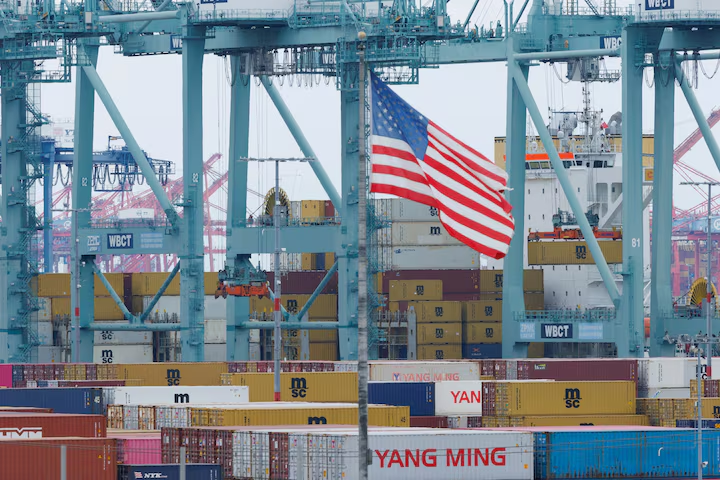The Full Federal Court of Australia has recently overturned a significant decision regarding India’s foreign state immunity defense in the context of enforcing a substantial investment treaty award.
The Court concluded that India’s participation in the New York Convention did not constitute a waiver of its foreign state immunity, particularly due to a commercial reservation that excludes non-commercial disputes from the Convention’s scope. This judgment marks a pivotal moment in the landscape of arbitration and state immunity law in Australia.
The case centers on a US $111 million arbitration award obtained by investors against the Indian telecommunications firm Devas Multimedia Private Ltd. Following the initial ruling that found India had waived its immunity, the Full Federal Court’s decision emphasizes the complexities involved in jurisdictional challenges related to foreign states. The implications of this ruling are profound, as it sets a precedent for how investment treaty disputes will be managed within the Australian legal framework.
Overview of the Full Federal Court Decision
The Full Federal Court’s ruling clarified India’s position on foreign state immunity in the context of enforcing arbitral awards in Australia. The decision overturned a prior judgment and highlighted the nuances of India’s participation in the New York Convention.
Reversal of the First-Instance Judgment
In Republic of India v CCDM Holdings, LLC, the Full Federal Court reversed the decision made by the Federal Court in 2023. The earlier ruling had found that India had waived its foreign state immunity in relation to the enforcement of a US $111 million investment treaty arbitration award.
The Full Court determined that India’s reservation to the New York Convention, which excluded non-commercial disputes, meant that it maintained its immunity under the Foreign States Immunities Act 1985 (Cth). This legal interpretation emphasized that ratifying the Convention did not automatically equate to waiving immunity claims when a reservation was expressly made.
Implications for International Arbitration in Australia
This decision has significant implications for the landscape of international arbitration within Australia. It establishes that foreign states can retain certain immunity protections, even when they are parties to international treaties like the New York Convention.
Legal practitioners may need to adjust their strategies when dealing with foreign state parties in arbitration. The ruling reinforces the importance of understanding the specifics of state immunities and reservations.
Consequently, future arbitration cases could see increased scrutiny on how states navigate international treaty obligations while preserving their immunity rights.
The ruling not only impacts India but may influence how other nations approach similar treaties and their associated reservations.
Details of the Case
This case involves the enforcement of a significant investment treaty award against India and the complexities of foreign state immunity. The following subsections detail the background of the dispute and the arguments surrounding India’s claim of immunity.
Background of the Dispute
The dispute originates from a US $111 million arbitral award granted to three Mauritian investors who were shareholders in Devas Multimedia Private Ltd, an Indian telecommunications firm. The award was issued under the India–Mauritius bilateral investment treaty after the investors alleged violations of their investment protections.
In 2021, the investors sought to have the award recognized and enforced in Australia. India contested this application, asserting that it was immune from the jurisdiction of Australian courts. The case escalated through the legal system, ultimately resulting in the Full Federal Court’s recent ruling.
The Argument of India’s Immunity
India argued its immunity based on the Foreign States Immunities Act 1985 (Cth), particularly Section 9, which protects foreign states from jurisdiction in Australian courts. It contended that its status as a party to the New York Convention did not imply a waiver of immunity.
Furthermore, India emphasized its reservation under the New York Convention, which excludes non-commercial disputes. The Full Federal Court, however, found that this reservation did not negate its obligations regarding arbitral awards, thus overturning the previous ruling that favored the investors.
Analysis of the New York Convention
The relationship between India and the New York Convention significantly influences foreign state immunity in this context. The nuances of India’s commercial reservation play a crucial role in understanding the implications of this decision.
The Commercial Reservation by India
India’s reservation to the New York Convention states that it only applies to commercial disputes. This reservation is paramount as it indicates that non-commercial activities do not fall within the scope of the Convention.
As a result, any arbitral award related to such activities may not enjoy the same recognition and enforcement benefits typically afforded under the Convention. The Full Federal Court emphasized this point in its ruling. By upholding India’s reservation, the court underscored its intention to limit the applicability of the Convention to commercial matters. This nuance potentially restricts avenues for investors seeking to enforce awards against India.
Impact on Foreign State Immunity
The decision of the Full Federal Court clarifies how the New York Convention interacts with the Foreign States Immunities Act 1985 (Cth). Foreign state immunity remains a critical pillar in international law, protecting states from being sued in foreign jurisdictions.
However, the court’s ruling implies that not all awards are automatically enforceable against states like India. Since India did not waive its immunity through the New York Convention due to its commercial reservation, it maintains a robust defense against enforcement actions. This outcome may discourage foreign investors from pursuing enforcement in Australia, impacting investment treaties and international arbitration strategies significantly.
Legislative Framework
The legal landscape involving foreign state immunity and arbitration in Australia is shaped primarily by two key pieces of legislation: the Foreign States Immunities Act 1985 and the International Arbitration Act 1974. Each of these acts addresses different aspects of how foreign states can be treated in legal proceedings and the enforcement of arbitration awards.
Foreign States Immunities Act 1985
The Foreign States Immunities Act 1985 (Cth) (FSIA) establishes the principles surrounding the immunity of foreign states within Australian courts. Under Section 9 of the FSIA, foreign states are generally immune from jurisdiction unless exceptions apply.
Notably, the Act outlines a distinction between commercial and non-commercial activities. This differentiation plays a crucial role in determining when a foreign state can be sued in Australia. Section 10 specifies that a foreign state may not claim immunity for proceedings arising from its commercial activities. This segment is vital for interpreting whether Indian immunity could be waived in the context of the New York Convention.
International Arbitration Act 1974
The International Arbitration Act 1974 (Cth) governs the recognition and enforcement of international arbitration awards in Australia. It implements the New York Convention, enabling Australian courts to enforce arbitral awards received under the provisions of international treaties.
Importantly, Section 8(3) allows parties to apply for recognition and enforcement of arbitration awards. The Act ensures that disputes falling within its purview are treated fairly and efficiently. However, the scope of enforcement can be complicated by stipulations like India’s commercial reservation under the New York Convention. This highlights the interplay between local law and international treaty obligations.








